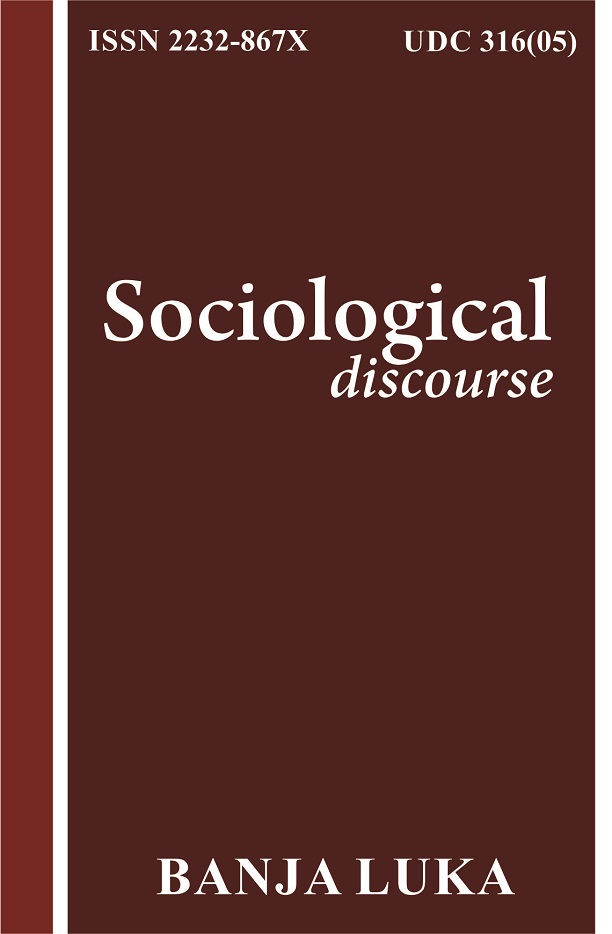Failed promises of modernization: Temporal trends in religiosity, postmaterialism and Ethno-nationalist attitudes in the Netherlands
DOI:
https://doi.org/10.7251/SOCEN1408029TAbstract
Th e process of modernization is understood to imply changing tends in prevalence
of certain value orientations. Th eoretical accounts dealing with the
processes of global value changes include notions such as secularization, modernization,
and postmaterialist value shift, among others. Th e paper analyzes
trends in prevalence of thee basic value or ideological orientations: religiosity,
postmaterialism and nationalist attitudes. Th e classical theories of value
transformation imply decrease in religiosity and nationalist orientations, and
increase in post-materialism. Th e problem is examined using data the Dutch
Parliamentary Election Studies (DPES). Th e Netherlands is an especially appropriate
case to address these problems. Th e trend of the initial sharp secularization
and then persisting religious cleavage is particularly clearly outlined
here. Th e Dutch have also been found to be among the most postmaterialist
nations. Finally, the new trend of anti-immigrant politics has also been early
and very vividly expressed in the Netherlands, indicating the importance of
nationalist attitudes.
Th e main fi ndings indicate that modernization and ‘post-modernization’
theories are imperfect explanations for the observed trends in values. Decrease
in religiosity is observed only for some indicators, while trends in nationalist
and post-materialist orientations do not follow the expected course.

